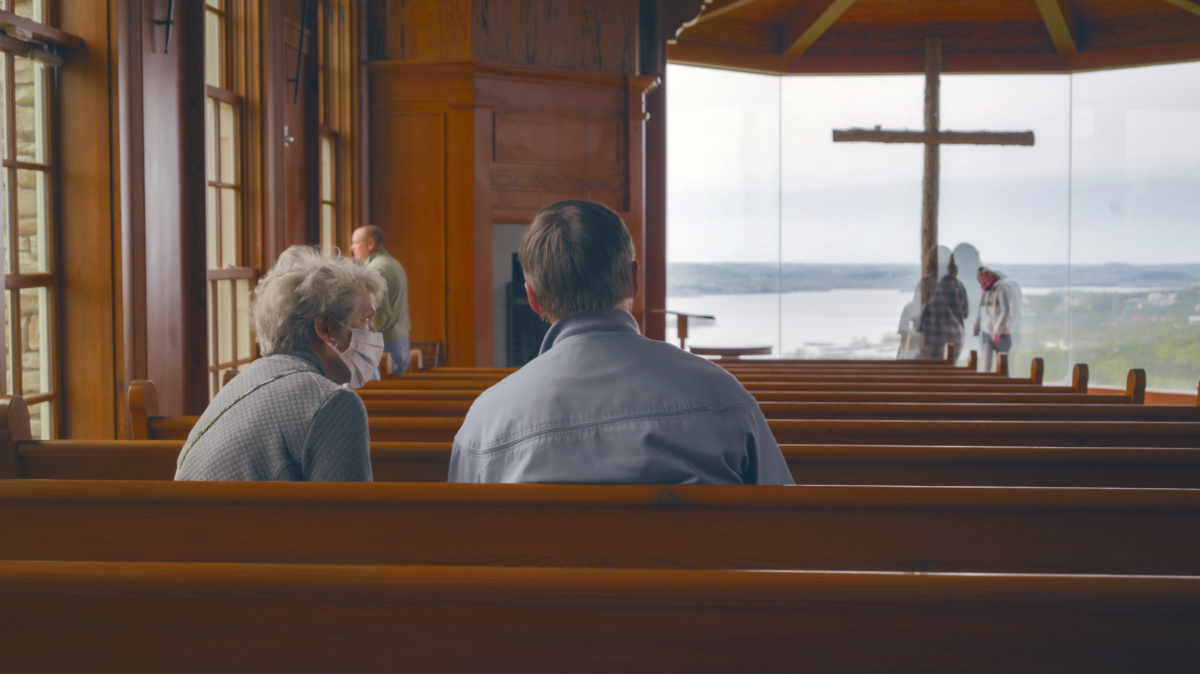Christmas is just 10 days away, and most Americans will celebrate the birth of Jesus. But a new poll from Pew shows the share of US adults who consider themselves Christian is falling.
Only 63 per cent of Americans self-identify as Christian this year, a marked drop from 75 per cent 10 years ago.
The declining number of Americans who say they are Christian is offset by a growing number of people who call themselves atheist, agnostic or people of no particular faith. These unaffiliated Americans make up a full 29 per cent of the US population, up from 19 per cent in 2011.

PICTURE: Nolan Kent/Unsplash/Creative Commons
“The secularizing shifts evident in American society so far in the 21st century show no signs of slowing,” the Pew researchers concluded. “The religiously unaffiliated share of the public is [six] percentage points higher than it was five years ago and 10 points higher than a decade ago.”
Though Christians are still a healthy majority, their decline is perhaps best reflected in two questions from the poll: how often people pray and how important religion is in their lives. Only 45 per cent of US adults said they pray on a daily basis (down from 58 per cent in a similar 2007 survey). And the number of Americans who say religion is “very important” in their lives is also falling: 41 per cent of Americans consider religion “very important” in their lives, down from 56 per cent in 2007.
Protestants account for most of the decline – down four percentage points from five years ago and 10 percentage points since a decade ago, with both evangelical and nonevangelical Protestants declining overall to 40 per cent of US adults. Catholics held relatively steady at 21 per cent.
“This is at least in part a reaction to the political environment,” said David Campbell, professor of American democracy at the University of Notre Dame who has written about American secularization. “Many people turning away from religion do so because they think of religion as an expression of political conservatism, or as a wing of the Republican Party. That’s especially true of white Americans. The more religion is wrapped up in a political view, the more people who don’t share that political view say, ‘That’s not for me.’”
There was no corresponding rise in the number of Americans adhering to other faiths. A total of six per cent of Americans identify with non-Christian faiths, including one per cent who describe themselves as Jewish, one per cent Muslim, one per cent Buddhist, one per cent who are Hindu and two per cent who identify with a wide variety of other faiths.
But notably, the number of atheists and agnostics in the survey roughly doubled in the past decade to four per cent and five per cent respectively, up from two per cent and three per cent in 2011.
We rely on our readers to fund Sight's work - become a financial supporter today!
For more information, head to our Subscriber's page.
Some scholars said this doubling may not be as big a shift numerically as it is culturally.
“There’s less stigma attached to being an atheist,” said Ryan Burge, assistant professor of political science at Eastern Illinois University and the author of a book about the “nones,” or the religiously unaffiliated. “It’s revealing of what’s been there for a long time, rather than a big shift. People may not have answered honestly 20, 30 years ago.”
But Burge said the decline of Protestant Christianity from 52 per cent in 2007 to 40 per cent today is very significant.
“It’s more evidence that America is going to be much different,” Burge said. “Think of American history. For a plurality of Americans to say religion is not important, that’s a big shift in how we think about ourselves.”
A survey released by PRRI during the summer found that the religiously unaffiliated had lost ground, making up just 23 per cent of the country. But the Pew poll found little to support that conclusion. The number of people with no religion grew steadily from 16 per cent in 2007 to 29 per cent in 2021, Pew indicated.
Despite the growth of secular Americans, shifts in American culture and politics have not caught up, said Hemant Mehta, a popular atheist blogger who has reported on issues important to the atheist community.
“All these numbers are meaningless unless we convert them into political power,” he said, speaking of the 29 per cent of people with no religious affiliation. “Conservative Christians do that really well. They still have all the power. We’re growing in numbers but we have no political power. Unless we can figure out how to get politicians to care about issues that matter to most of us, what’s the point?”
The poll was part of the National Public Opinion Reference Survey conducted by Pew online and by mail between May and August. The survey was conducted among 3,937 respondents, who took the poll on their own (not in response to an interviewer). It has a margin of error of 2.1 percentage points.




